Jerusalem Ceramic Tray
The Jerusalem Ceramic Dish is a beautiful and practical piece that embodies the rich historical and cultural tapestry of Jerusalem, one of the oldest and most revered cities in the world. Known for its religious significance to Judaism, Christianity, and Islam, Jerusalem has long been a center of artistic expression, particularly in the realm of ceramics. The ceramic dish stands as a testament to this legacy, reflecting not only the skilled craftsmanship of local artisans but also the intricate narratives that define the city’s identity.
### **Historical Context**
The artistry of ceramics in Jerusalem and its surrounding regions can be traced back thousands of years. Archaeological findings indicate that pottery has been a central component of everyday life in this area since ancient times. From the early clay vessels of the Iron Age to the intricate tile work of the Byzantine and Ottoman periods, ceramics have played an essential role in both utilitarian and decorative forms.
In contemporary Jerusalem, pottery remains a vibrant expression of the city’s diverse cultures. This tradition has adapted and evolved, combining influences from various historical periods, ethnic groups, and religious practices. As artisans work to preserve age-old techniques, they also embrace modern aesthetics, ensuring that the ceramic dish continues to celebrate Jerusalem’s storied past while remaining relevant in today’s world.
### **Artisan Techniques**
Craftsmanship is at the heart of every Jerusalem ceramic dish. Artisans typically begin with locally sourced clay, which has been a staple material for centuries. The clay is kneaded and shaped either on a potter’s wheel or by hand, emphasizing the unique touch of each craftsman.
The decorative arts in Jerusalem are characterized by their vibrant colors and intricate patterns. Artisans apply various glazing techniques, often featuring bright blues, greens, and yellows reflective of traditional Palestinian motifs and Middle Eastern influences. These techniques are passed down through generations, ensuring that the artistry remains rooted in the heritage of the region.
One of the most distinctive features of Jerusalem ceramics is the use of motifs that draw inspiration from the city’s diverse culture and religious symbolism. Popular themes include floral designs, geometric patterns, and motifs naively celebrating the city’s iconic sites, such as the Dome of the Rock, the Western Wall, and theChurch of the Holy Sepulchre. Each design tells a story that echoes the spirit of the city, infusing every dish with a sense of place and identity.
### **Symbolism and Meaning**
The Jerusalem Ceramic Dish carries profound symbolic significance. Serving as a practical item for everyday use or special occasions, the dish embodies the values of hospitality and community that are so central to the culture of Jerusalem. Meals are often shared in family and communal settings, emphasizing the importance of connection and togetherness.
Many ceramic dishes feature religious symbols and motifs, often making them special collectibles or gift items for those who wish to commemorate spiritual milestones or celebrations. Such designs might include the Star of David, Christian crosses, or Islamic calligraphy, reflecting the city’s multi-religious character and offering a tangible expression of faith.
In this light, the ceramic dish serves not just as an aesthetic piece but also as a conversation starter, inviting discussions about Jerusalem’s rich heritage and the harmonious coexistence of its diverse cultures. This blending of symbolism, artistry, and daily use elevates the ordinary ceramic dish into an emblem of cultural pride and mutual respect.
### **Cultural Impact**
The Jerusalem Ceramic Dish is not only a true representation of local craftsmanship but also a vehicle for cultural exchange. As artisans create ceramics for both local and international markets, they engage in a dialogue with the world, sharing the unique artistic traditions of Jerusalem.
This global outreach helps bridge cultural divides, allowing people to appreciate the beauty and depth of Jerusalem’s heritage. Artisans often participate in fairs and exhibitions around the world, showcasing their work and providing insights into their techniques and inspirations. This international presence enhances awareness of Palestinian culture, fostering respect for its history and artistic contributions.
Furthermore, the sale of these ceramic dishes often supports local economies, providing artisans with a livelihood and empowering them within their communities. Many initiatives focus on fair trade practices, ensuring that artisans receive a fair wage for their work while preserving their craftsmanship and heritage.
### **Modern Adaptations**
While traditional designs are prevalent, many contemporary artisans are exploring innovative forms and aesthetics in their ceramic dishes. Modern adaptations may highlight minimalist designs, unique shapes, and contemporary glazes that appeal to a global audience. This blending of tradition with modern influences ensures the continued relevance of Jerusalem ceramic artistry in today’s fast-changing world.
Workshops and community centers in Jerusalem often foster collaboration among young artisans, encouraging the next generation to engage with their cultural heritage while exploring new creative avenues. By nurturing this artistic spirit, they help ensure that skills and techniques are preserved while evolving to meet contemporary tastes.
### **Conclusion**
The Jerusalem Ceramic Dish is a testament to the city’s rich cultural and historical identity. It encapsulates craftsmanship, artistry, and the deeply woven narratives that define Jerusalem. More than just a functional item, the dish serves as a symbol of hospitality, community, and faith, inviting those who use it to participate in a rich tradition that spans generations.
As these ceramic dishes find their way into homes around the world, they become ambassadors of culture, showcasing the beauty of Jerusalem’s heritage while fostering a greater understanding of its diverse communities. In an era where mass-produced items often overshadow artisanal crafts, the Jerusalem Ceramic Dish stands as a celebration of individuality, creativity, and the enduring human spirit.
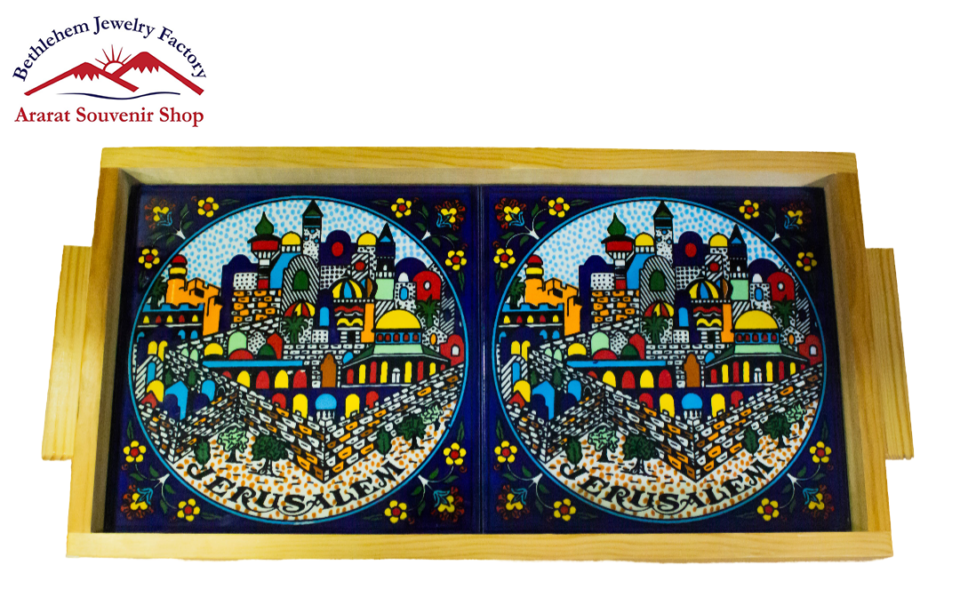
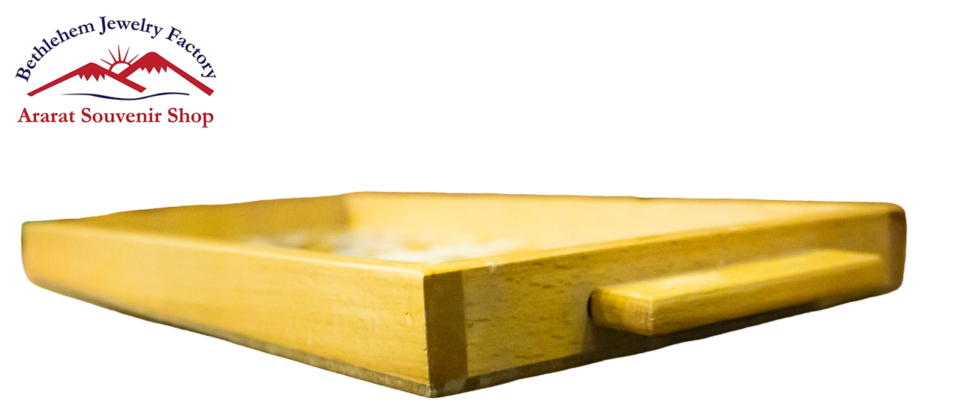
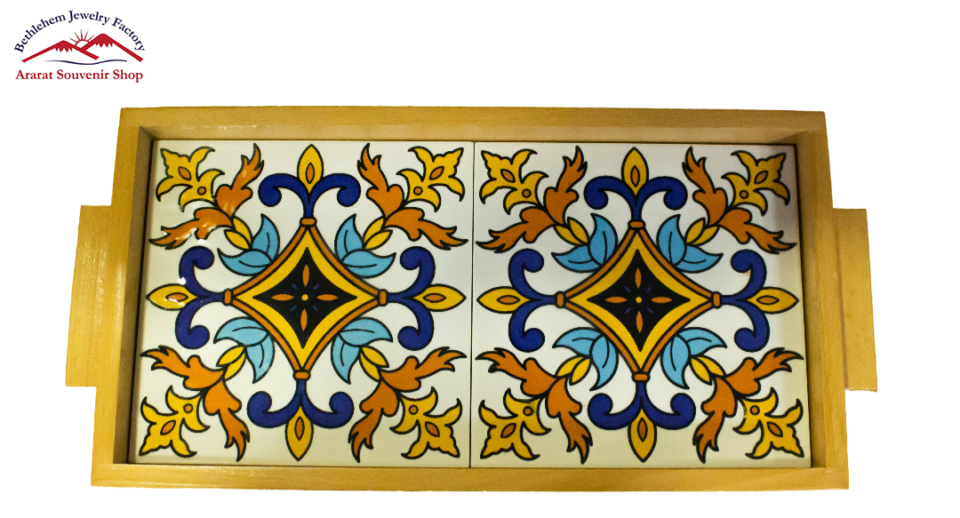
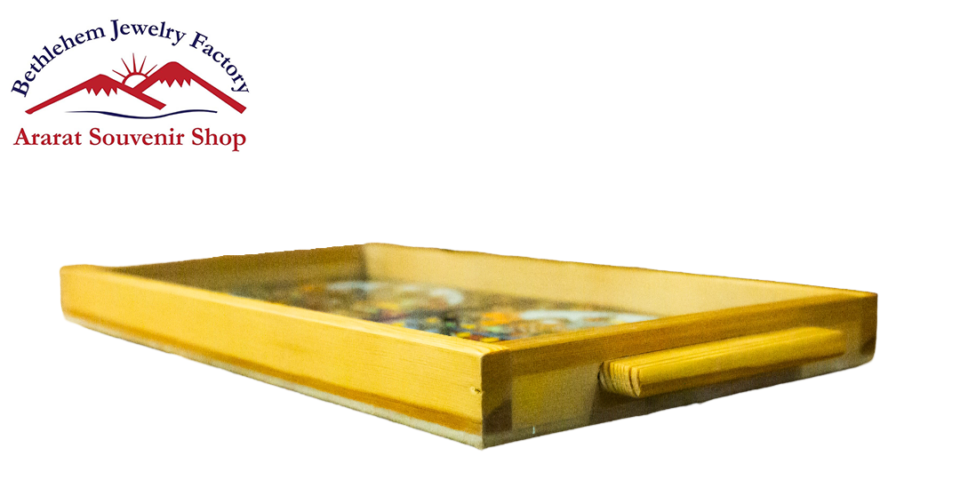
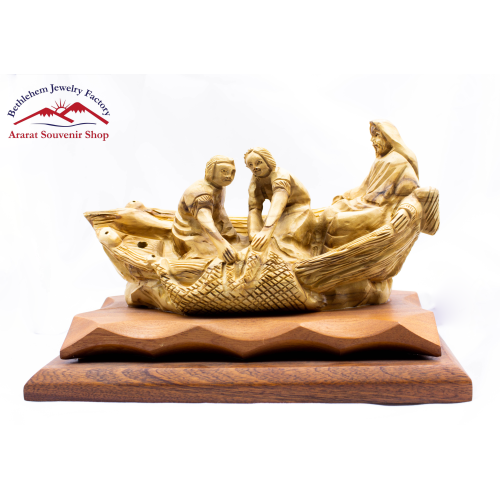
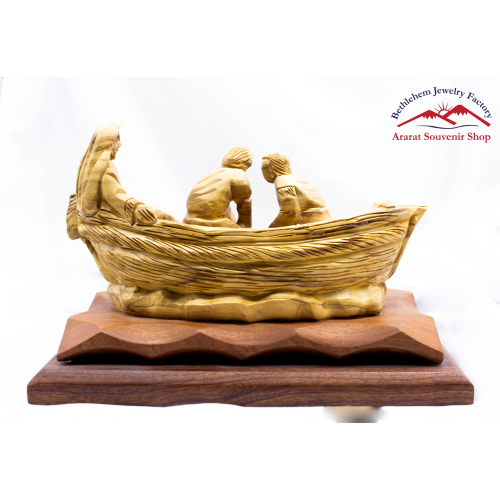






Reviews
There are no reviews yet.